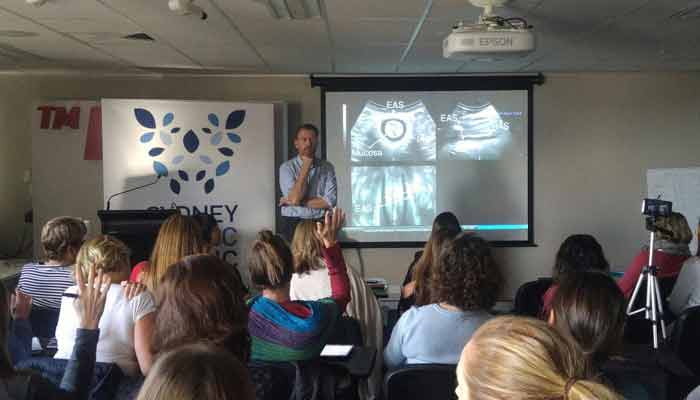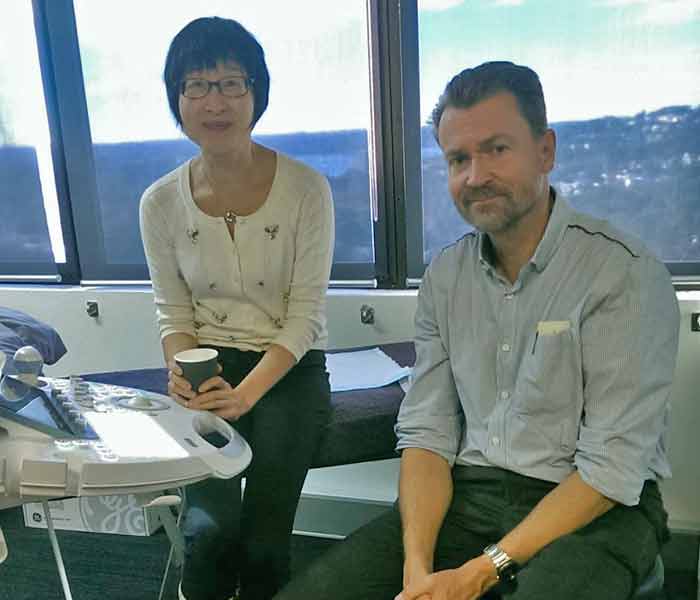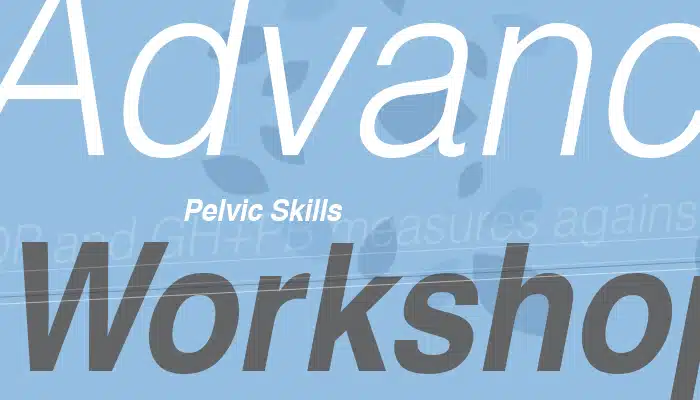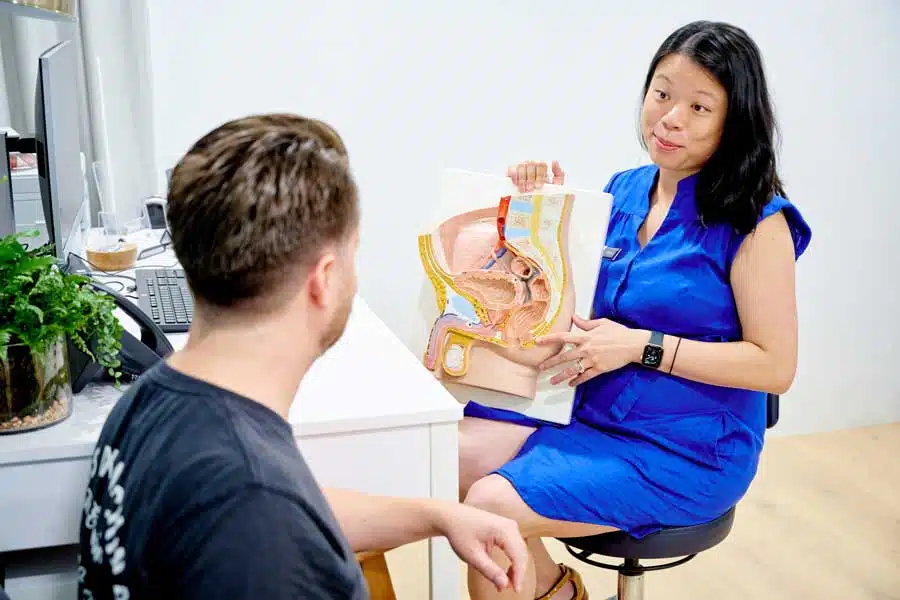On Saturday 5th August 2017, Sydney Pelvic Clinic proudly hosted Prof Hans Peter Dietz and A/Prof Clara Shek for a unique 4 hour workshop. We were joined by over 50 passionate pelvic physiotherapists for this event, which included a lecture by Prof Dietz, assessment of POP and GH+PB measures, assessment of POP and GH+PB measures against 3D ultrasound measures of levator hiatus, and discussion on future management and research. All proceeds were donated to the Australasian Birth Trauma Association.

Event Details
In November 2016, the pelvic physios at Sydney Pelvic Clinic had a team meeting discussing management for women during child-bearing. We started to look closely at the literature available to guide our management and Prof Hans Peter Dietz featured front and centre in our searches. We decided to contact Peter with a simple request – ‘can you please come and talk with us to help us better translate your research into our clinical practise?’ To our delight, he said yes. So began months of collaboration between Peter and myself to determine how to use this opportunity wisely. We decided to look at how our clinical skills correlated with his 3/4D ultrasound, and were fortunate enough to have GE lend us an ultrasound machine for the day.
We had 50 passionate pelvic physiotherapists join us for the event on Saturday 5th August, with 30 of the group attending the practical component. We all enjoyed hearing from A/Prof Clara Shek on ultrasound measures for urinary incontinence. It would be wonderful to integrate the suggested measures – we could more accurately predict the likelihood of women achieving continence with PFMT alone. Measuring mid-urethral hypermobility sounds like it could help us in this risk assessment and we are keen to take this further in a future workshop.
Peter then spoke with us about his inspiring and important work on prolapse and birth trauma. It was such a pleasure to hear his research directly, and we are grateful for the work he has done in this field. It helps us better navigate the challenging times of pregnancy, delivery and recovery with our patients. Certainly minimising risk of pelvic floor injury is a key objective of pelvic physios, as it can influence the life-time risk for surgery and pelvic floor dysfunction. I was keen to discuss our labour preparation work with Peter, and was pleased to find out he was also interested in looking at its effectiveness with a pilot study. Surely, the future is in prevention.
After a short afternoon tea break, we headed to the practical sessions where a volunteer model was assessed for pelvic organ prolapse quantification (POP-Q), pelvic floor muscle strength, presence of levator avulsion and genital hiatus + perineal body measurements. We had 5 small groups complete the measures, and a representative presented their findings to Peter and Clara. The model was then assessed using the GE ultrasound, and we were pleased to find out the clinical measurement was in very close alignment to the ultrasound findings. It was pleasing to find out our hand skills are at a high level of accuracy.
We closed the workshop with networking drinks at The Nelson, and managed to secure commitment from Peter and Clara that this event would not be the last. We are looking forward to continuing this collaboration to help us best manage women through the child-bearing years and beyond.
We would like to thank everyone who supported this not-for-profit event, as together we were able to donate $3000 to Australasian Birth Trauma Association.


